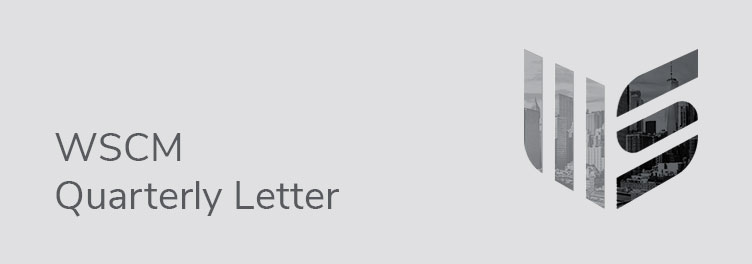
The S&P 500 lost 3.3.% for the quarter ending September 30th, and while positive for the year, this is entirely due to a handful of large-capitalization companies. On an equally weighted basis, that index is now negative for the year.
In our July commentary, we emphasized the importance of interest rates, and rising rates are the major problem today. It would be easy to blame the Federal Reserve for the market’s weakness, but the Fed has been signaling “higher for longer” for many months. U.S. consumer confidence has weakened but retail sales continue to surprise on the upside as jobs and asset values are still supporting consumer spending. It would appear that interest rates haven’t been high enough for long enough to fulfill the Fed’s aim of bringing inflation back to 2%. We would expect, therefore, that a “data-dependent” Fed will continue their restrictive policy until there is clear evidence that its objective will be met. The downside of this approach is, of course, that the economy could suffer a sharp slowdown.
At least some explanation for the economy’s resilience lies with the wealth of American households, which are estimated to have increased by some $40+ trillion since the start of 2020. We can thank a good stock market and booming housing market for a substantial part of this increase. The downside is that this was all made possible by unrealistically low interest rates and massive government deficit spending.
While interest rates are beginning to normalize, government spending continues and deficits continue to rise. This latter factor is important for bond investors as they will demand a higher interest rate for holding a longer-duration instrument.
As we enter the fourth quarter, we are optimistic that we will see a year-end rally, and historically the third year of a presidential cycle is the strongest. There is increasing evidence, moreover, that the Federal Reserve may be done raising interest rates, at least for this year. For the market to move appreciatively higher, however, we must see increasing corporate profits and a decreasing cost of money.
October 2023
Click to Download
PLEASE NOTE: Unless otherwise stated, the firm and any affiliated person or entity 1) either does not own any, or owns less than 1%, of the outstanding shares of any public company mentioned, 2) does not receive, and has not within the past 12 months received, investment banking compensation or other compensation from any public company mentioned, and 3) does not expect within the next three months to receive investment banking compensation or other compensation from any public company mentioned. The firm does not currently make markets in any public securities.